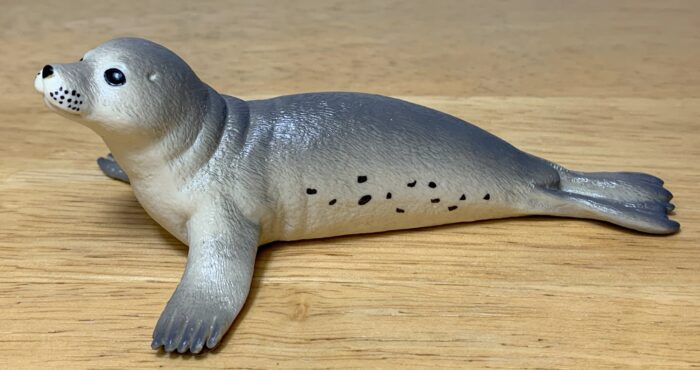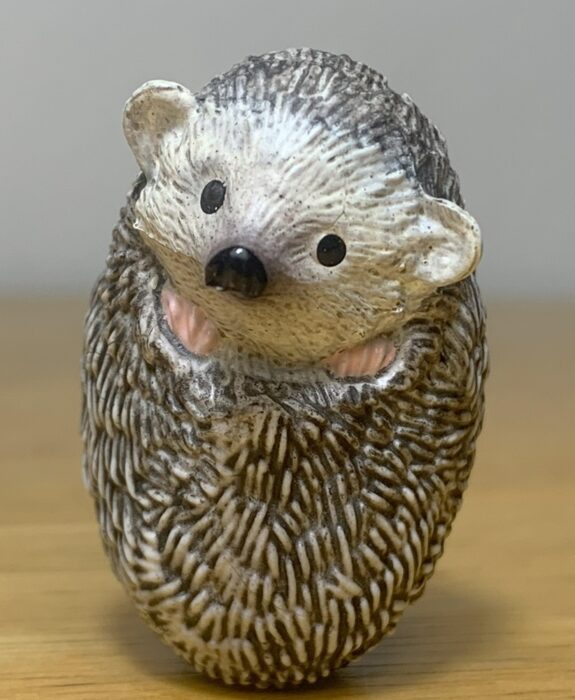In Celtic mythology there exists a creature known as a selkie, a shapeshifting being that takes on the form of a seal when in the water but can transform into a human by removing its sealskin on land. Selkie stories often involve a romantic relationship between a human male and female selkie wherein the human hides her sealskin so she cannot return to the sea, forcing her into marriage but resulting in an unhappy life for the selkie.
Author: Gwangi
 My name is Arthur but I go by Gwangi on the blogs and forums, as homage to the old dinosaur and monster movies I love so much. In addition to writing about and collecting toy animals (extinct and extant) I also share my home with a variety of living animals, mostly reptiles but a little bit of everything. I have a lifelong interest in all things pertaining to nature and natural history and most of my hobbies can be linked to those things in some way. I currently live in Maryland with my wife and daughter. In addition to writing on here I also write magazine articles, typically about local wildlife and aquarium fishes.
My name is Arthur but I go by Gwangi on the blogs and forums, as homage to the old dinosaur and monster movies I love so much. In addition to writing about and collecting toy animals (extinct and extant) I also share my home with a variety of living animals, mostly reptiles but a little bit of everything. I have a lifelong interest in all things pertaining to nature and natural history and most of my hobbies can be linked to those things in some way. I currently live in Maryland with my wife and daughter. In addition to writing on here I also write magazine articles, typically about local wildlife and aquarium fishes.All reviews by this author
Polar Bear (Wild Animals by Papo)
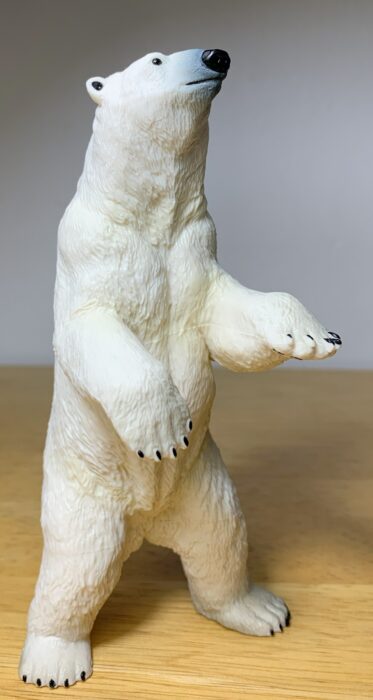
Paradoxically, the polar bear (Ursus maritimus) is both the world’s largest terrestrial carnivore and a marine mammal. They get their marine mammal designation because they live on water, albeit in the form of ice. Yes, that makes it a bit of a stretch to call it a marine mammal, but the polar bear is quite capable in liquid water as well.
Sailfish (Marine Life by Papo)
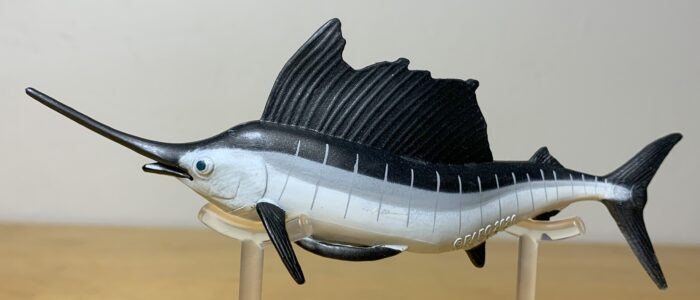
With alleged speeds of up to 68 mph the sailfish is said to be the fastest animal in the sea. However, recent studies suggest a maximum speed of only 34 mph. That’s still fast for an aquatic animal though, matching other ocean speedsters like the mako shark and killer whale. And with its tall, sail-like dorsal fin, it is one of the sea’s most visually distinct and impressive fishes.
American Black Bear, 2024 (Wildlife America by Schleich)
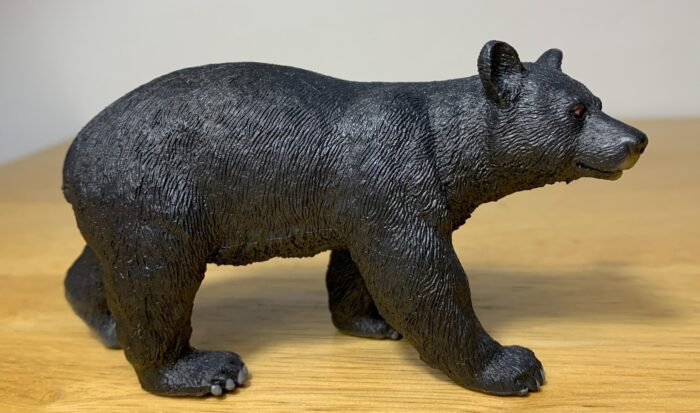
The American black bear (Ursus americanus) is the smallest and most wide-ranging bear species in North America. They’re found from coast-to-coast, from Alaska to Mexico, where they prefer forested environments. Once found in every state in the U.S. their population has been greatly reduced, especially in the Midwest, but they’ve been steadily repopulating areas they were previously extirpated from.
Guineafowl (Farm Animals by Papo)
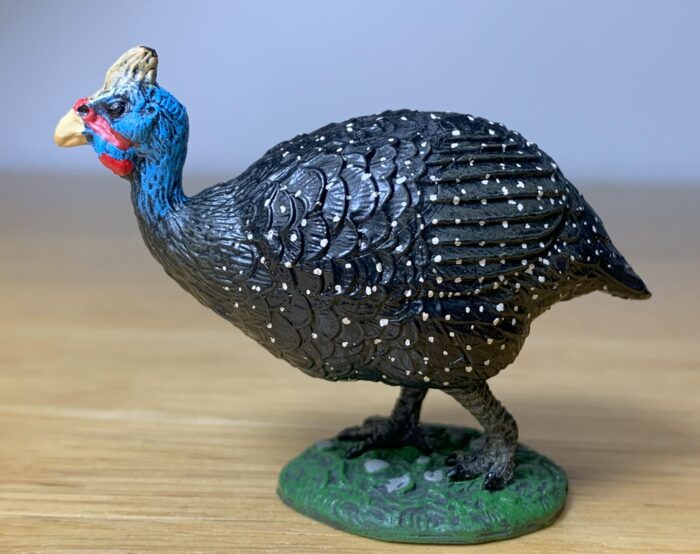
Before we begin the review, I would like to extend my gratitude towards Happy Hen Toys for sending this figure along as a review sample. Check out their large selection of animal and dinosaur figures by clicking the banner below.
Guineafowl are Galliformes belonging to the family Numididae and are native to Africa.
Grizzly Bear, Female (2004) (Wildlife America by Schleich)
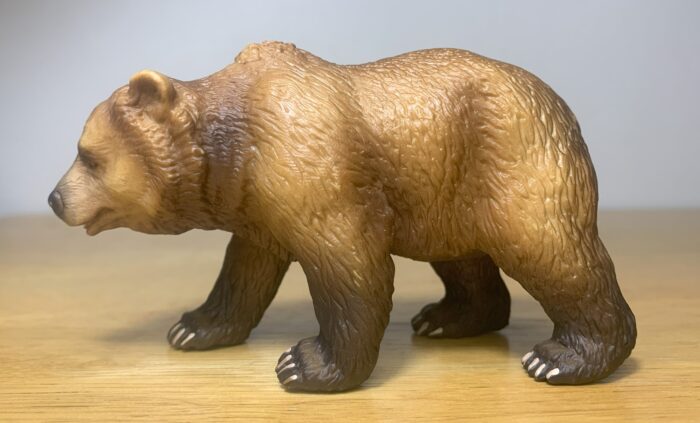
The brown bear (Ursus arctos) is the world’s second largest carnivoran and has the largest distribution of any bear species, with a range stretching across Europe, Asia, and North America. They even once inhabited the Atlas Mountains of Africa. As with any animal with such a large range there are many subspecies of brown bear and in North America none is more well known than the grizzly (U.
North African Hedgehog (Baby Animals by Yowie Group)
Howler Monkey (Wild Safari Wildlife by Safari Ltd.)
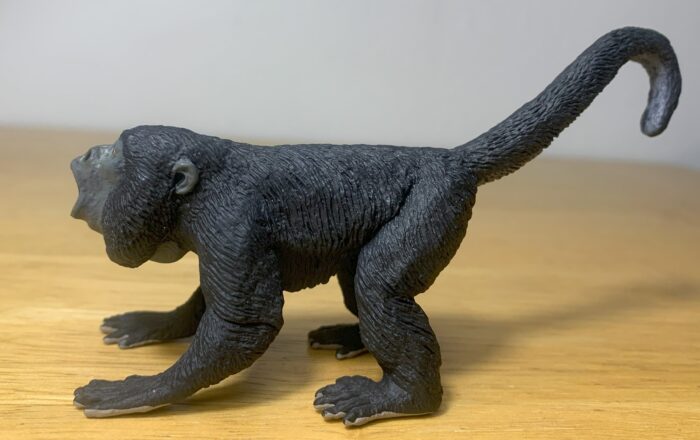
The howler monkeys of the genus Alouatta are among the largest and most widespread of new world monkeys and are famed for their loud vocalizations, among the loudest of all terrestrial animals. With the aid of an enlarged hyoid bone the guttural howls of these monkeys can be heard up to 3 miles (4.8 km) away.
Humpback Whale (Sealife by Mojö Fun)

Although the blue whale is the largest of all baleen whales it seems that the humpback whale (Megaptera novaeangliae) is the most popular, but maybe that’s just my personal assumption after seeing it plastered all over Christian Lassen school supplies in the 90’s. The toy market seems to back up my claim though, with Toy Animal Wiki cataloging several more humpback figures than blue whale.
Wallaby (Wild Safari Wildlife by Safari Ltd.)
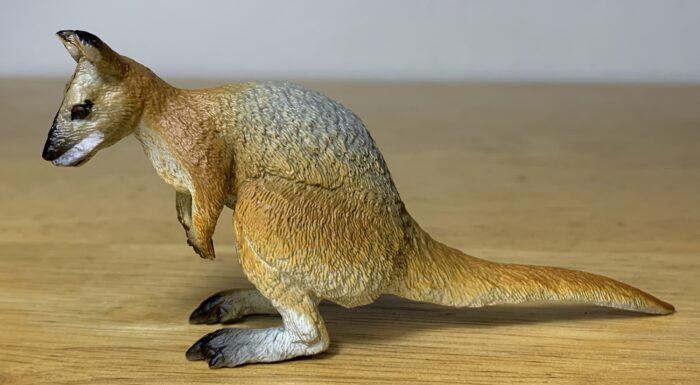
The Safari Ltd. wallaby was released in 2016 and sculpted by Doug Watson. Although currently available on Safari’s website it has been perpetually on sale for some time, which likely means it has been retired and is being cleared out. Let’s take a closer look at it and see if it’s worth grabbing before it’s gone.
Tasmanian Devil (Wildlife by Mojö Fun)
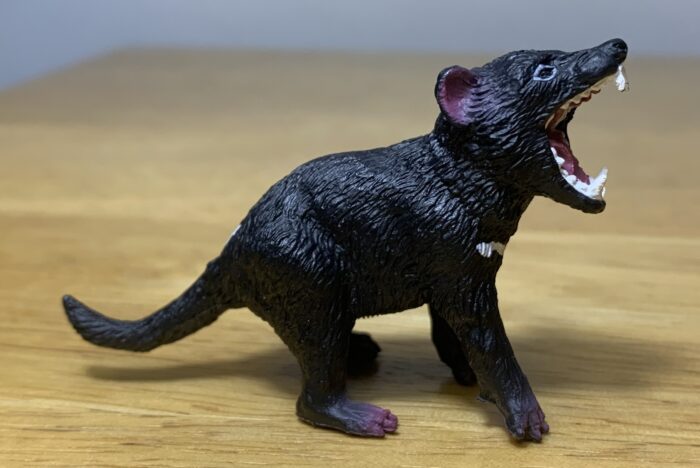
With the extinction of the thylacine the Tasmanian devil (Sarcophilus harrisii) claimed the title of the largest extant marsupial predator, weighing up the 18 lbs. (8 kg.) in the case of males. Not a terribly impressive size for the largest marsupial predator, I’ve had cats that outweigh the Tasmanian devil!
Caribou (Wild Safari North American Wildlife by Safari Ltd.)
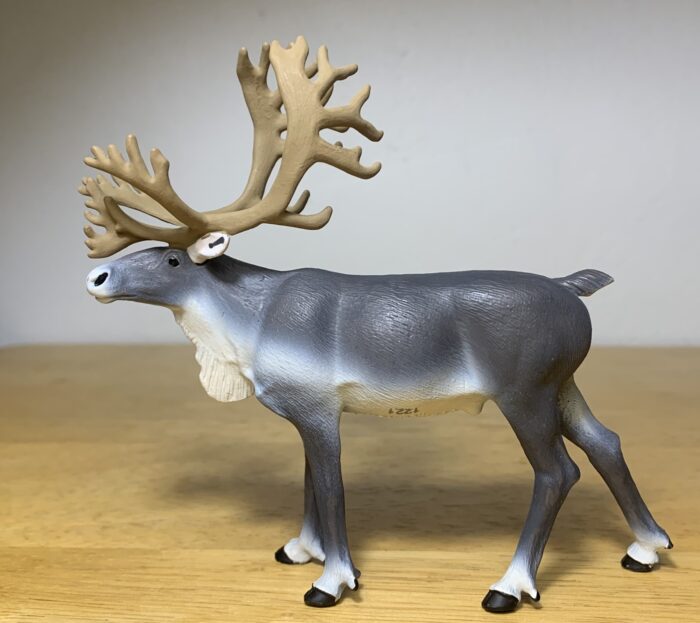
A few years ago, I reviewed the CollectA woodland caribou for the holiday season and since I’m a one-figure-per-species collector I thought I would be done with caribou aka reindeer after that. But here I am again with another figure of the same species, again for the holiday season. Why? Well, I got this idea in my head that for Rangifer tarandus I might want to collect some of its many subspecies.

